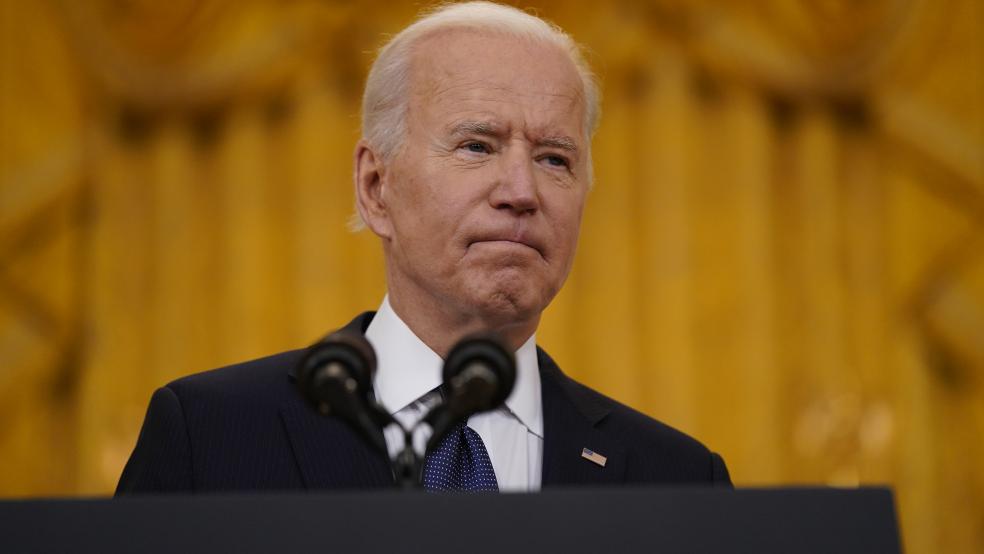As President Joe Biden works to court lawmakers and win support for his $4 trillion in tax and spending proposals, most of the speculation has been about whether he can find common ground with Republicans on an infrastructure deal. But Biden’s tax plans are also meeting some resistance among Democrats, especially those worried about being tarred as tax hikers ahead of the midterm elections.
Sen. Joe Manchin (D-WV) and other moderate Democrats have already pushed back on Biden’s plan to raise the corporate tax rate from 21% to 28%, saying they prefer a 25% rate instead. Other Democrats have insisted that they won’t support any package unless it includes a repeal of the $10,000 cap on the deductibility of state and local taxes. But as The Washington Post’s Jeff Stein and Tyler Pager report, the Democratic concerns are broader than that:
“Pockets of skepticism have emerged within Biden’s party over White House plans to raise the corporate tax rate, revamp the international tax system and double tax rates on wealthy investors, among other measures critical to the administration’s plans. The party faces regional divides over taxes as well, with farm-state Democrats skittish about taxes on heirs and coastal Democrats demanding the repeal of limits on state and local tax deductions, which would amount to an expensive tax cut that would require higher taxes elsewhere….
“The open-ended nature of the discussions has led to a bevy of ideas from Democrats and little clear progress toward a resolution. Democrats said some donors are anxious about the political ramifications of raising taxes before the midterms, especially given the party’s tough odds to hold onto the House. Rep. Sean Maloney (D-N.Y.), chair of the Democratic Congressional Campaign Committee responsible for party fundraising, has privately warned the tax plans could hurt vulnerable House Democrats up for reelection in 2022, said two people familiar with the matter, who spoke on the condition of anonymity to discuss internal matters.”
The concerns could be an obstacle if Democrats look to pass Biden’s plans without Republican support, since they would need nearly every member of their narrow majority in the House and all 50 Democratic senators to back their bills, giving individual lawmakers extraordinary leverage over the details of the legislation.
But tax hikes on the rich and corporations are popular: At the same time, as liberal Washington Post columnist Paul Waldman writes, poll after poll has found widespread public support for tax increases on the rich and corporations, the kinds of hikes that Biden has proposed. “Let’s be clear: There is almost nothing in either party’s policy agenda that is more popular than raising taxes on the wealthy,” Waldman notes, adding that, “the truth is that whatever you think about the fiscal wisdom of raising taxes on the wealthy, there is simply no doubt that it’s a political winner and always has been.”
The White House is well aware of that. “The administration knows these taxes are very popular,” Celinda Lake, a Democratic pollster who advised Biden’s campaign, told the Post. “But Democrats in Congress are nervous from decades about being attacked as tax and spenders.”
Some Democrats open to more deficit spending: As some Democrats eye changes to Biden’s tax proposals that could leave hundreds of billions of new spending unpaid for, other members of the party have suggested that lawmakers shouldn’t be too concerned about fully offsetting the costs of their new plans. “The whole point is that we are making generational investments that will provide value for 30 or 50 or 100 years. With interest rates at a historic low, it makes sense to pay for these initiatives over a longer period of time,” Sen. Brian Schatz (D-HI) told the Post.
Biden has said that he was “not willing to deficit spend” to pay for permanent new programs, but as Stein and Pager write, the “congressional and political realities stand to pose a test of Biden’s aspirations to fiscal responsibility.”





